Seng-ze Gyanak Mani Wall outside Yushu Collapses
Seng-ze Gyanak Mani Wall outside Yushu Collapses: Parts of the amazing Seng-ze Gyanak Mani Wall outside Yushu collapsed during the earthquake. The tradegy is not only for Tibetan heritage, but also for human life, as we understand at least one woman was crushed to death by the falling stones.
The Seng-ze Gyanak Mani Wall was a special place of worship for Tibetans. Pilgrims travel hundreds, if not thousands, of miles to walk around this astonishing pile of stones. My photos don’t do it justice.
What is a Mani Wall?
Mani Walls are rows of piled-up stones, engraved or painted with orations. The size of such Mani Walls can vary from the humblest pile to a circuit of several hundred meters. Pilgrims walk round these walls of holy stones in a clockwise direction, uttering prayers and twirling prayer wheels.
The Seng-ze Gyanak Mani Wall was truly enormous; a sign by its side proudly proclaimed that it is 283 metres long, 74 metres wide, 2,5 metres high and consists of 2 billion stones! What’s more, the Wall was still growing, as we witnessed with our own eyes: devout pilgrims contribute new stones everyday, which are hoisted up on to the pile carefully. The billions of beautifully carved stones carry the Buddhist prayers “Om Mani Padme Hum” or, “Hail to the Jewel in the Lotus”, and other orations.
I’m sure that whatever the damage caused by the earthquake, the indomitable spirit of the people who live in this harsh yet spectualar land, will rebuild and continue to build the Mani Wall.

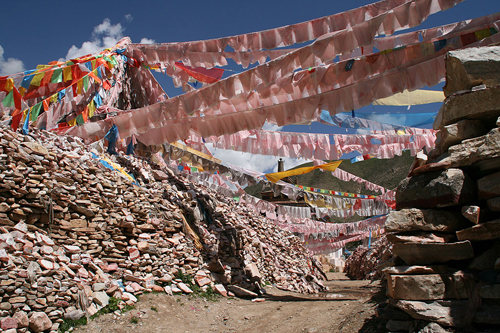
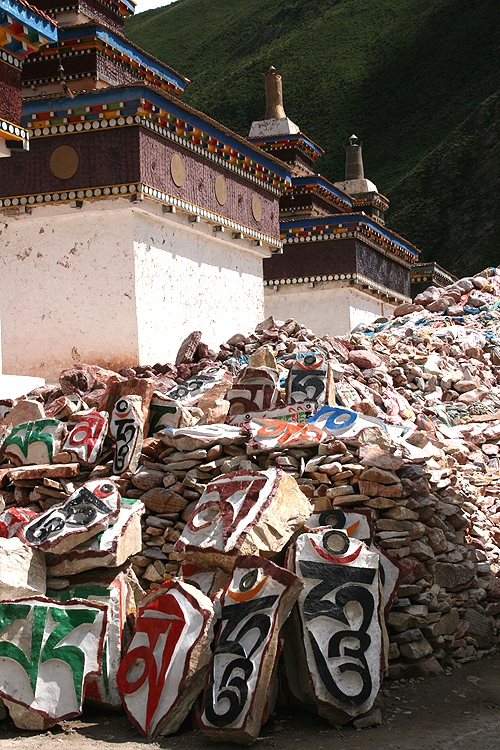
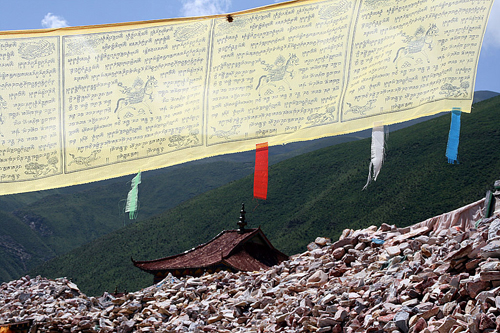
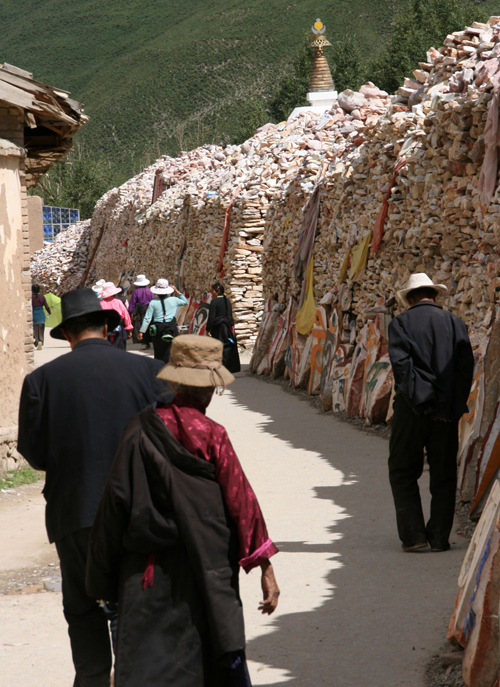
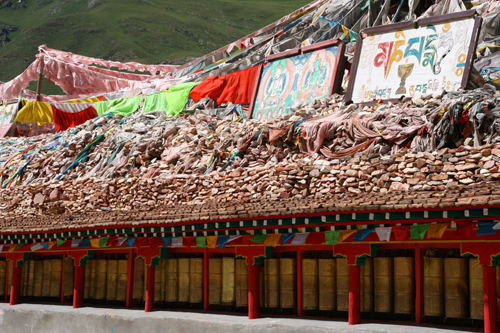
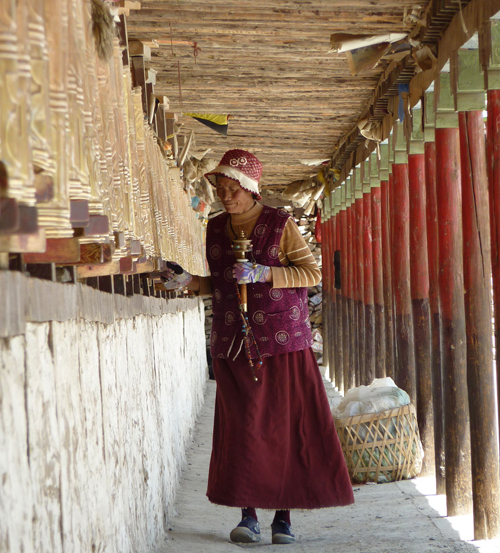
I’m glad you took pictures of that beautiful Mani wall before this happened. Sometimes we are not aware of the impact of our work or pleasure. Your trips there has brought attention to those areas not covered by the glossy travel magazines. I’ve come to be aware of these lovely people through your blog, just as I hope to bring awareness to the Berbers in Morroco.